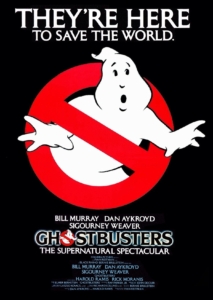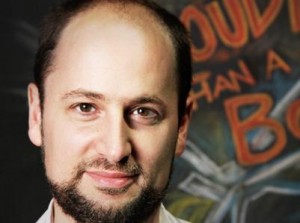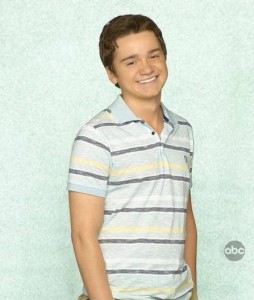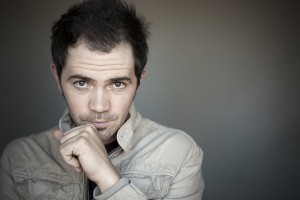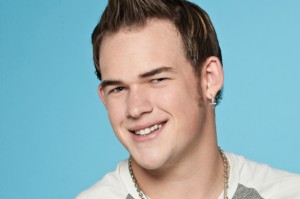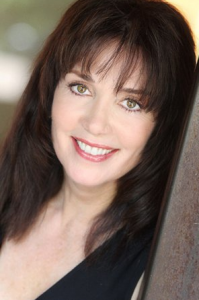If you said “The ‘She Blinded Me with Science’ dude”, you’re probably in a vast majority. But, as Dolby’s long-time fans know, he’s far more than just being the artist responsible for the irresistibly catchy song that propelled him to the top of the charts and made him a staple of MTV’s golden era. In addition to a being technological pioneer both inside and outside of the recording studio, Thomas’ musical career boasts a body of innovative work that includes five albums, the most recent of which – “A Map of the Floating City” – is his first since 1992. It’s a triumphant return and one that hopefully marks the beginning of an equally prolific stage for him as a singer, songwriter and performer.
In talking with Thomas, he touched upon the things that drove him to create new music, reflected back on experiences from early on in his career, and how he’s seen the music industry and new talent evolve into the modern era. We even had a chance to Cher our views on a certain vocal effect.
Dave Picton: “The Map of the Floating City” is your first new album of studio material in 20 years. What made you want to return to creating and releasing new music after all of that time?
Thomas Dolby: I suppose I just had some new songs that I wanted to get out. You know, they say often with an artist’s first album, that you’ve had 20 years of life experience to draw from and, with your second album, you’ve had six months of airport lounges and hotel bars. [laughs] I felt that I’d had another 20 years of life experience to draw from. I had a lot of good ideas and things that I wanted to express.
DP: “Map” certainly wound up being quite autobiographical in nature. What influenced that approach?
TD: Well, I think the biggest influence on me, really, is my environment. I think especially that moving and becoming displaced and that feeling of dislocation is a strong sort of catalyst of new songs for me. So that sort of explains the map and the three continents reflecting three places that I’ve lived. There’s “Urbanoia” and it clearly shows that I’m not a city person. In “Amerikana”, the aggregate of me living in the States was a really good one. I’m drawn to indigenous American music because we don’t really have indigenous music here in the UK. That may sound strange to say, but I tend to charitably think of us being very original and innovative and so on, but in fact what we’re really good at is sort of plundering musical styles from elsewhere in the world and putting a cool sort of wrap on them and re-exploiting them. A sort of musical imperialism, you know? [laughs] So, with the “Amerikana” section, it was sort of a nod in the direction of roots and old-time American music but with a unique sort of British tint to it. And then “Oceanea” was really about coming home to England and feeling very comfortable in the environment here. I live in a tiny village on the coast where my mum’s side of the family is from. She never had the chance to meet my family. She would have been very proud to see them back here growing up and learning to love it the way she did.
DP: Jumping back to the notion of combining musical styles and using them in your music, what things were you listening to at the beginning that made you want to go into music and stuff you continue to listen to throughout your career?
TD: Fairly diverse and eclectic music. I was always more into individuals with a unique voice and rock and roll band music.
DP: Any one in particular?
TD: When I was a teenager, David Bowie was a big influence. Zappa, Captain Beefheart, Joni Mitchell and Van Morrison were big influences. These are all wide varieties of different styles of music but what they all have in common is a unique lyrical voice. The music that they made with the arrangements they created and the production and so on all served to tell a story. They all wrote songs that you could have sat down and sung on the piano and they still would have made sense.
DP: Is there a favorite genre that you like to settle into and work with or are all of them pretty comfortable and enjoyable to work with?
TD: Well, what I enjoy most is working with a genre that I’m not too familiar with because it’s an exploration. I tend to steer clear of styles that I’m too fluent in because there’s less randomness to it. It’s more predictable. So I find it stimulating to work in a new style.
DP: If I snagged your iPod and pressed “random”, what artists would I hear? Would you be one of them?
TD: Well, inevitably, there’s a few of mine on there because I need to take them with me to listen to all sorts of rough mixes and things like that. But, besides that, you would hear Iggy Pop. Bjork. Dan Hicks. T-Rex. Marvin Gaye. Trentemøller. Athlete. Venus Hum. BT. And some of the others I mentioned earlier.
DP: You embraced technology from the very beginning of your career. A great many things have happened in that realm since your first album, “The Golden Age of Wireless”. Has evolving technology changed the way you approach writing music and what do you think the effect of it has been on music in general?
TD: I think that the main difference is that D.I.Y. music has become possible. You couldn’t do anything yourself in 1980. You needed somebody to fund you to go into a studio, which is very expensive and is the only place to make a high-quality recording. You also needed somebody with distribution power or else the public would never get to hear what you made. So there was sort of this obstacle course that you needed to get through before you ever got in front of an audience. Many people that were very talented didn’t make it through those hurdles. Today, there’s absolutely nothing to stop you getting out in front of the audience without any outside help at all. For a few hundred bucks, you can have a recording studio on your laptop and services that, without any investment up front, will help you distribute your music. This is great news for talented youngsters because all talented youngsters believe “Well, as soon as the world hears me, they’re going to fall in love with me and I’ll be a mega-star!” But, back in my day, we were actually kidding ourselves. We first needed the industry to fall in love with us. That has very wide implications. The first is that it’s a very healthy thing for the music itself because, back then, if you sat down to write a song, you were worried whether or not you can get a cassette to the A&R man or, even if you weren’t really signed, would the marketing department and the promotion guys really go for it? Is radio going to play it? Is retail going to stock it? You were concerned about all of those things and they preyed on your mind when you wrote a song. Or at least they did on mine.
DP: Was this phenomenon one that was relevant to you in the period between “Golden Age” and your second album, “The Flat Earth”?
TD: I think it was relevant to me to an extent because there was a lot of pressure on me to repeat the formula that had made “She Blinded Me with Science” successful. In industry terms, the textbook thing to have done would have been to have trotted out another half-dozen quirky synth-pop hits with gimmicky videos and those people would have told me “Then, Thomas…you can gradually turn people around to your more personal intimate music.” [laughs] But I’m impatient. I had a lot more depth in me and I wanted to jump right on to the more important stuff. This didn’t sit too well with the industry. There was friction there and it was ultimately disappointing, really, that the industry couldn’t get behind my more personal material especially when it turned out that, over the years, when the internet emerged and so on, you could get more feedback from the fans other than just record sales. You could actually hear what they thought of one song or another and what they appreciated about your music and how they found out about it and so on. Suddenly the internet enabled the audience to feed back to the creator and it turned out that – big surprise – songs that they were really into were not “She Blinded Me with Science” or “Hyperactive!”. The songs that they were into were “Screen Kiss” and “Budapest by Blimp” and “I Love You, Goodbye” which are my favorite songs as well. It was hard for me during the 80’s to persuade my record label that they should put some weight behind those and I partly have myself to blame for that because they’d seen me make a lot of money with “She Blinded Me with Science” and they felt “Well, why can’t you just do that?”
DP: Was the inclusion of “Hyperactive!” on “Flat Earth” sort of fulfilling of that end of the bargain to an extent? It certainly seemed to be a song that was out of place with the rest of the songs on that album.
TD: You know, I don’t want to give you the impression that I despise the poppy side to what I do. I mean, I like the spectrum of things that I do. Even on the new album, something like “Toad Lickers” which is clearly a little bit tongue-in-cheek and a little ironic, is lot more frivolous than the more meaty material on the album. So I do enjoy it. There’s a side of my nature that wants to do those kinds of things as well as the other ones. But I guess with a song like that there is a distraction. It’s impossible for someone with a record label mentality or a radio mentality to see the wood for the trees, really. You know, I’d go into my company’s office at the time of the “Flat Earth” album and they’d say “Oh, Thomas! You wouldn’t believe it! All of the secretaries here are in love with ‘Screen Kiss’ and they’re all humming it and playing it and saying what a beautiful song it is!” and I’m going “Great! Are we going to go with it as a single?” “No…we’re looking for something more like ‘Hyperactive!’ or ‘She Blinded Me with Science’.” So the good news is that these days you don’t have to be accountable like that to anybody else other than your audience. As an example, the first song off of the new album that we promoted at all was “Oceanea” and there’s no beat to it. It’s kind of radio catastrophe. [laughs] But, at the same time, I’d seen the reaction of my audience to that song that it had the deepest affect on people. And I thought “Well, you put your best foot forward”, you know? That’s what you go with.
DP: For “Map of the Floating City”, did you put out a couple of songs, get the fan feedback and then say to yourself “Oh, I was going to go in this direction but this is an interesting idea, I think I’ll go in a different direction” or were the songs already in the can? And to what extent does the interaction with your audience play into when you’re starting to write and compose songs?
TD: I wouldn’t say that it affects me directly. I think that I do it for a couple of reasons partly because I like the moral support that I get, both from the audience and the making of the music as well. I feel that, rather than working in a void, there’s an active audience out there that’s ever eager to get a hold of my new material. I tend to work on my own and just bring in other musicians for specific tasks so it’s not like there’s a core group of us that sit down every day to press on with the album. So I miss that camaraderie but what I gain by having a tight loop with the audience is that I can sneak stuff out in a fairly stealthy way and get feedback from it. Invariably they’re pleased with what I do, but every now and then something doesn’t get as good of a reaction as I had hoped and it sort of makes me go “Hmm…I wonder what they’re not seeing in this.” So I think it definitely influences me but it doesn’t radically change the choices that I make in terms of the songs themselves and the way that they’re arranged and presented. I’ll give you an example: on the original demo for the song “Oceanea”, I used a processing effect on the voice in the first verse which involved heavily compressing and filtering the vocal and keening certain syllables. It’s kind of what AutoTune does in an automated way but I was sort of doing it manually. I did it that way specifically as an experiment because I thought that it gave it a certain vulnerability. Because of that, I got some backlash from people that said “Eeewww…I hate AutoTune! I’ve hated it ever since Cher!”
DP: Well, I hate to say it Thomas, but I was one of those people. I wrote a review of “Map of the Floating City” that you wound up commenting on specifically in regards to that track and AutoTune.
TD: Oh, OK. Well it doesn’t bother me that people have those reactions. As you noticed, despite that, I didn’t change it. I stuck to my guns on it and I’m still glad that I did. I perform the song live now and I miss that effect, not just because I can’t sing it in tune [laughs] but because it has a certain innocence about it. Unfortunately, it pushed the wrong buttons for some people because they have a built-in prejudice about AutoTune and the flavor that brings to music and, in my case, it was a very deliberate thing.
DP: One of the things I pointed out in our online dialog was that, to me anyways, there seems to be a difference between the song “Oceanea” as released on the EP and then what followed on the “Map of the Floating City” album. I listened to the two versions quite a few times and it certainly seemed to me that on the EP version, the effect fades out after the first verse and, after that, it’s pretty much devoid of any vocal effect whereas the version that appears on “Map” has it throughout.
TD: Well, since that discussion with you, I haven’t gone back and listened to both but, to the best of my memory, it’s the exact same vocal in the first verse on the EP and on the album. I don’t remember changing or altering it further. It could be that the rest of the mix around it changes your perception of it, but I believe it’s basically the same vocal.
DP: Over the course of your career, you’ve done a fair amount of work on film soundtracks such as “Gothic”, “Howard the Duck” and “The Gate to the Mind’s Eye”. Is that something you could foresee doing more of in the future?
TD: I would consider doing it in the future. I had mixed results with it. “Gothic” is slightly in the news at the moment because of Ken Russell dying the other day and because people are looking retrospectively at his work. It turns out that “Gothic” was quite a popular one and a lot of people single out my score as being something unique about that film. I really enjoyed working one-on-one with him. In the other cases, it was more of a committee decision, you know, and it’s a bit disappointing that as a composer on a movie, you’re kind of relatively genial on the totem pole. You’re sort of down there with the lighting guys and things like that, so if something is required to change for the sake of the movie, there’s no question that the composer has to sort of swallow it. This was quite hard for me because I put a lot of love in everything that I do and nothing I do is throw-away. So if, for example, a scene is cut, and I lose a piece of music that took me days to come up with and it’s not going to get used in the movie and yet the studio owns the copyright and therefore I can’t use it anywhere else, that’s a bit disappointing. But you’re expected to just sort of expect that because you’re part of a larger team. So I think that the right situation for somebody like me in film is when you get to work with one of the few actual auteurs that are out there. I think a good example is Danny Elfman and his work with Tim Burton where very early on they established a relationship and Tim Burton became valued for his the individuality of his films and the fact that he has a single-minded vision that Danny’s music definitely was a major component in. He’s done great great work but I wish we all could have as cushy a ride on a movie.
DP: You recently remastered and reissued “The Golden Age of Wireless” and “The Flat Earth” as expanded editions that really fleshed out those two works for those who had heard them when they were initially released and serve as a great introduction for those who only know “Science”. Are any other items in your backcatalog slated to get a similar treatment?
TD: Well, not really. There’s not a lot of wastage in what I do so there’s very few outtakes and demos and things like that. I’ve got something that I’m interested in reworking which is when I put together my band, the Lost Toy People, in ’87-ish we went out on tour before we ever went into the studio to make the “Aliens Ate My Buick” album. We did some sort of basement tapes which were straight to two-track tape. We were pretty hot at the time because we had been touring, so the songs had a certain rawness about them that I thought was really interesting. I also have quite a lot of video footage of us on that tour. I’m quite tempted to remaster those tapes and piece it together – although it would be a bit of a cheat to use visuals from the tour and those tapes – and create a lost LTP basement tape type of recording.
DP: Throughout your career, you’ve been able to have a wide variety of high-profile musicians including the likes of Mark Knopfler, Jerry Garcia and Eddie Van Halen as session musicians on your albums. Is there any one of them that you’ve most enjoyed working with? And are there any out there that you’d like to work with at some point in the future?
TD: Well, I love working with other musicians. It’s interesting that very often with guitar, which is not my instrument, I’ll have a song and think of a certain guitarist and imagine how they’d fit right in. Interestingly with both Jerry Garcia and Eddie Van Halen, when I first started working with them, they picked up their guitars and tried to sound like Thomas Dolby which is not what I wanted at all. [laughs] I just wanted them to be themselves so I could see the way they could fit in with what I was doing. I’d say the exception to that rule amongst the guitar heroes that I’ve worked with was Mark Knopfler who actually listened to the song very hard from start to finish and then picked up a guitar and played me take after take all of which were just gorgeous. He just said “As long as you want to keep winding the tape back, I’m happy to give you another one.” So I winded up with like 15 or 16 different takes and it was very hard to choose between them because each one was unique and different. He never played the same thing twice and all of it seemed like a really good expression of the feeling of the song.
DP: When you work with other musicians, do you bring them in and actually work with them in person or are they working remote with the raw mix that you’ve provided them with and they, in turn, send their track over to you?
TD: With the three that we’ve discussed, I worked with them in person but for quite a few of the guests on the new album, I wasn’t there. Imogen Heap just recorded some jaw harp for me and sent me over a sample. Regina Spektor I met once only when she did the TED conference a couple of years ago. I just sent her the tapes and suggestions for her lines in English and she translated them into Russian and just sent me back some recordings. Ditto with Natalie MacMaster, the Cape Breton fiddle player that plays on the album. Uh, with Ethel and with my horn section, I went and recorded them in person because there’s a lot of arranging that had to get done on the fly.
DP: Now that “Map of the Floating City” has been released, are you planning on any sort of live tour to support it?
TD: Yeah, we’re trying to put a tour together for the spring. Sort including South by Southwest and Cochella. Where are you?
DP: I’m on the east coast, Connecticut specifically.
TD: Right. I think we’ll be coming through something like the end of March.
DP: I saw you a few years back at BB King’s Blues Club in New York City when you played there and it was a great show.
TD: Oh yes, I enjoyed that. Was that with a horn section or just me?
DP: Just you. Will the new tour be a solo one as well?
TD: I’ll have a small band with me. As soon as things are firmed up, I’ll be posting the tour information on my website. I look forward to seeing you there.
DP: And I certainly look forward to being there. It’s been a pleasure talking with you, Thomas.
TD: Thanks. Same here. See you soon, my friend.
For more information about Thomas Dolby and upcoming tour information,
visit www.thomasdolby.com
